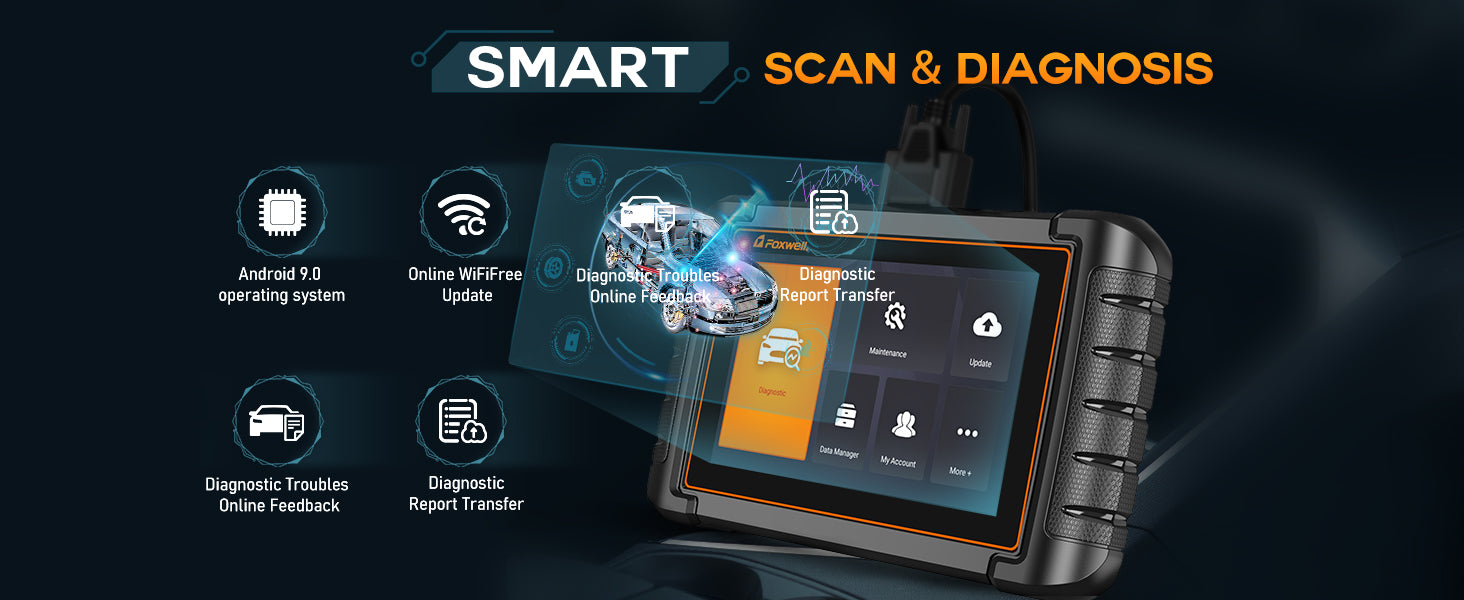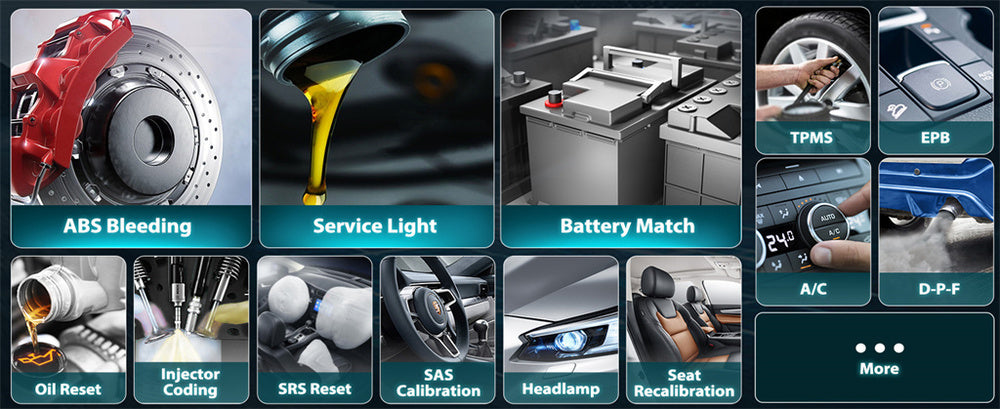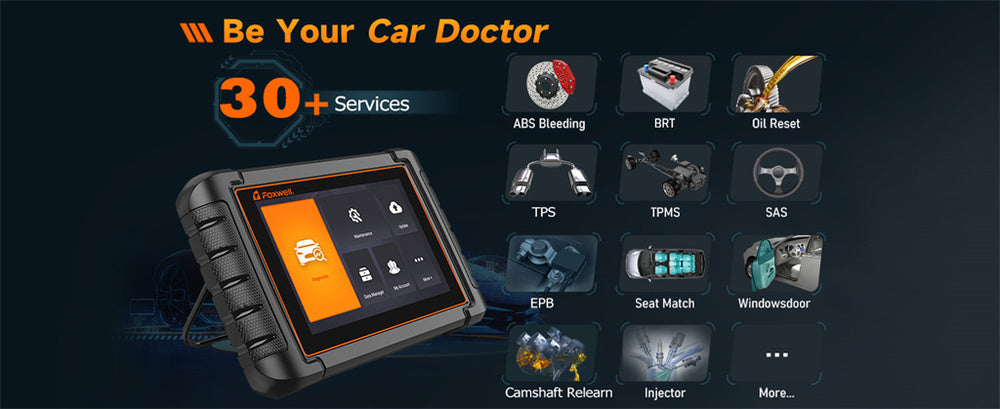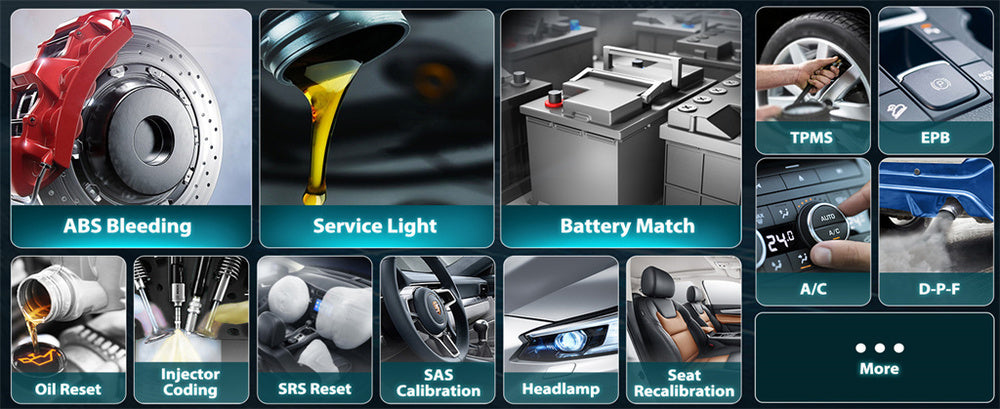Technology has become an integral component of everyday life, including vehicles.
Car enthusiasts and professional automotive obd2 scanner increasingly equip their cars with devices like scanners to monitor performance and quickly diagnose any potential issues.
However, the line between helpful gadgetry and legal compliance may often need to be clarified - particularly with tools capable of intercepting communication signals.
Understanding whether having a scanner in your car is legal is vital, as regulations vary significantly from jurisdiction to jurisdiction, and noncompliance can have serious legal repercussions.
This exploration delves into various types of scanners commonly found inside vehicles and their respective legal framework and offers insight into how best to navigate these waters safely and responsibly.

Understanding Scanners and Their Purpose
Within the automotive world, "scanners" refer to various devices used for different purposes.
Two popular kinds are OBD2 scanners and radio scanners, each offering specific benefits and applications.
OBD2 scanners
OBD2 scanners are tools designed to access and read information from a car's onboard computer system.
Every vehicle manufactured since 1996 must include an OBD2 system continuously monitoring engine health and other vital components.
Here's how OBD2 scanners typically function:
Diagnostic Reports: They offer detailed diagnostics and real-time data regarding your car's engine health, efficiency, and emissions system performance.
Trouble Codes: When issues occur, OBD2 scanners read trouble codes generated by your car's computer.
These codes help identify specific problems, such as malfunctioning sensors or more serious mechanical problems, and pinpoint specific solutions.
Maintenance Reminders: Some advanced scanners provide owners with reminders for scheduled vehicle maintenance checks and routine vehicle checks.
Radio Scanners
Radio scanners, on the other hand, intercept communication via radio frequencies. Though not specifically automotive tools, radio scanners may still be utilized by enthusiasts or professionals for various reasons, such as monitoring communication.
Emergency Broadcasts: Emergency broadcast scanners allow users to listen to live transmissions from emergency responders such as police, fire departments, and paramedics.
Weather Alerts: Staying aware of live weather alerts is especially crucial in areas prone to extreme conditions.
Hobbyist Activities: Radio enthusiasts use scanners as part of their hobbyist pursuits to access many broadcasts for entertainment and information-gathering purposes.
Legal and Practical Considerations
OBD2 scanners are generally accepted and legal for private vehicle usage; however, radio scanners' legality varies considerably by location.
Certain regions might prohibit their use due to concerns that intercepting police or emergency communications would breach privacy and security.
Privacy Concerns: Radio scanners' ability to intercept private communications raises ethical and legal considerations that lead to restrictive regulations in certain jurisdictions.
Security Risks: Unauthorized listening in on emergency responses poses a security risk, mainly if sensitive information is handled.
Both scanners play essential roles, from vehicle maintenance to communication monitoring.
However, users must fully comprehend these devices' capabilities and any legal restrictions that limit them; being informed about what each scanner can do and its operating boundaries can prevent legal complications and maximize usage effectiveness.
Integrating Foxwell Scanners for Automotive Excellence
When discussing the legality and utility of automotive scanners, it's crucial to highlight examples that both adhere to legal standards while improving diagnostics and maintenance of vehicles.
Foxwell NT510 Elite OBD2 Scanner exemplifies this balance, offering vehicle owners and technicians a legal yet robust diagnostics tool for diagnostics and maintenance.
Here's how Foxwell products meet both legal compliance and practical utility in automotive care:
Legal Compliance of Foxwell Scanners
Foxwell's NT510 Elite was designed for personal or professional use by vehicle owners or professional technicians and connects directly to an OBD2 port that is legally accessible by both.
This ensures its compliance with automotive laws in most jurisdictions that permit the reading and clearing of trouble codes and diagnostic functions.
Non-Invasive Tool: OBD2 scanners such as the Foxwell NT510 Elite are an invasive yet non-invasive way of collecting diagnostic and maintenance information.
They do not capture external communications relating to vehicles outside their own. Instead, they only access data meant for maintenance, repair, and diagnostic use—so no privacy laws are violated!
Enhancing Diagnostic Capabilities with Foxwell
Comprehensive Diagnostics: The Foxwell NT510 Elite goes far beyond basic code reading to offer features such as bidirectional testing, EPB (Electronic Parking Brake) adjustment, and SAS (Steering Angle Sensor) calibration that extend beyond simply diagnosing issues to verify repairs and adjustments as part of its comprehensive toolbox for vehicle maintenance.
Ease of Use and Efficiency: The Foxwell NT510 Elite's user-friendly interface makes diagnosing and resolving issues quickly possible without needing multiple consultations or diagnostic tools.
This efficiency plays a significant role in minimizing downtime and maintenance costs while simultaneously increasing productivity.
Imagine this: your technician needs to reset the service light after routine maintenance or diagnose an intermittent engine issue that does not display on a check engine light.
Luckily, Foxwell NT510 Elite makes these tasks fast and simple, keeping your vehicle in excellent condition without breaking any laws or standards.
Legal Considerations for Car Scanners
Understanding the legal framework surrounding scanner use is critical for compliance and avoiding potential legal issues, with laws often differing depending on the type of scanner and jurisdiction:
OBD2 Scanning
Legal Considerations: OBD2 scanners like the Foxwell NT510 Elite are typically legal for diagnosing vehicle issues in most countries worldwide, including the U.S. These devices access information provided directly by vehicle systems, usually not protected under privacy laws.
Privacy Concerns: While OBD2 scanners do not pose any significant privacy threats, any data collected must still be used appropriately when shared with third parties for diagnostic or repair advice.
Radio Scanners Differing State Laws: Radio scanner use in vehicles is tightly regulated throughout the United States, with some states banning their use altogether while driving and others placing no such restrictions.
Federal Regulations: Under federal law, radio scanners that intercept encrypted or scrambled communications are illegal, as are their use to aid criminal activities or facilitate illicit conduct. Case Studies
Here is an example of how legal considerations may impact scanner use:
Case Study 1: New Jersey Radio Scanner Laws
Scenario: In New Jersey, an individual was charged with possessing a radio scanner without first receiving permission from state authorities or being a licensed amateur radio operator. New Jersey law prohibits their use in vehicles except by those holding licenses as amateur radio operators or with prior state approval.
Attainable Results: The charges emphasized the importance of complying with specific state laws regarding radio scanners rather than just federal ones.
Case Study 2: OBD2 Scanner Use in Repair Shops
Scenario: In California, a car repair shop was fined for using uncertified OBD2 scanners that did not comply with state regulations that stipulate that all automotive diagnostic equipment be approved to ensure accurate emissions testing.
Scanner Use in Vehicles: Utilizing scanners is an invaluable way of diagnosing and communicating, but it's crucial that we abide by legal regulations to avoid potential issues. Here is how you can ensure your scanner use is both practical and legal:
Understanding and Complying with Local Laws
Before purchasing and using radio scanners in your vehicle, research local regulations carefully. Laws regarding OBD2 scanners vary greatly by region, and some have stricter rules.
Consult Legal Professionals: If in doubt, consult a legal expert who can offer guidance based on current laws and regulations regarding scanner usage in your jurisdiction.
Responsible Use of OBD2 Scanners
Employ OBD2 scanners responsibly for their intended purpose—vehicle diagnostics and maintenance—rather than altering vehicle data illegally (e.g., tampering with the odometer).
Privacy Considerations: When sharing diagnostic information with third parties, be aware of data privacy. Secure their consent as necessary and ensure it complies with privacy laws when sharing.
Licensing and Permits for Radio Scanners
Before purchasing or using a radio scanner, check if any license or permit is needed from local authorities in your jurisdiction and if its frequency capabilities include intercepting police or emergency frequency ranges.
Avoid Misunderstandings When Employing Radio Scanners: Even in places where radio scanners are legal, use them inconspicuously to avoid misinterpretations of their purpose, especially during times of increased security risk or in public spaces.

Conclusion
Following these guidelines will ensure your use of scanners in vehicles remains legal and ethical.
Whether diagnosing vehicle issues professionally or listening to transmissions as an enthusiast, understanding and adhering to the legal framework is paramount for the ethical use of car scanners.
This section offers actionable advice for legally using various types of scanners in vehicles, highlighting the need to remain informed and vigilant.
Feel free to reach out if any specific details or additional guidance are needed!
FAQs
Are OBD2 scanners legal to use on my car for diagnostic purposes in the U.S. and most other countries?
Yes, using an OBD2 scanner on your vehicle for diagnostic purposes is legal in both cases.
Can I legally use a radio scanner in my vehicle?
That depends on your location. Some places restrict or ban radio scanners in vehicles because they could potentially intercept police or emergency signals, so always check local laws first.
How can I ensure the legality of my scanner use?
To maintain legality when using scanners in vehicles, ensure they are only used for their intended purposes and follow any local regulations regarding scanner types and vehicle uses.




Leave a comment
This site is protected by hCaptcha and the hCaptcha Privacy Policy and Terms of Service apply.